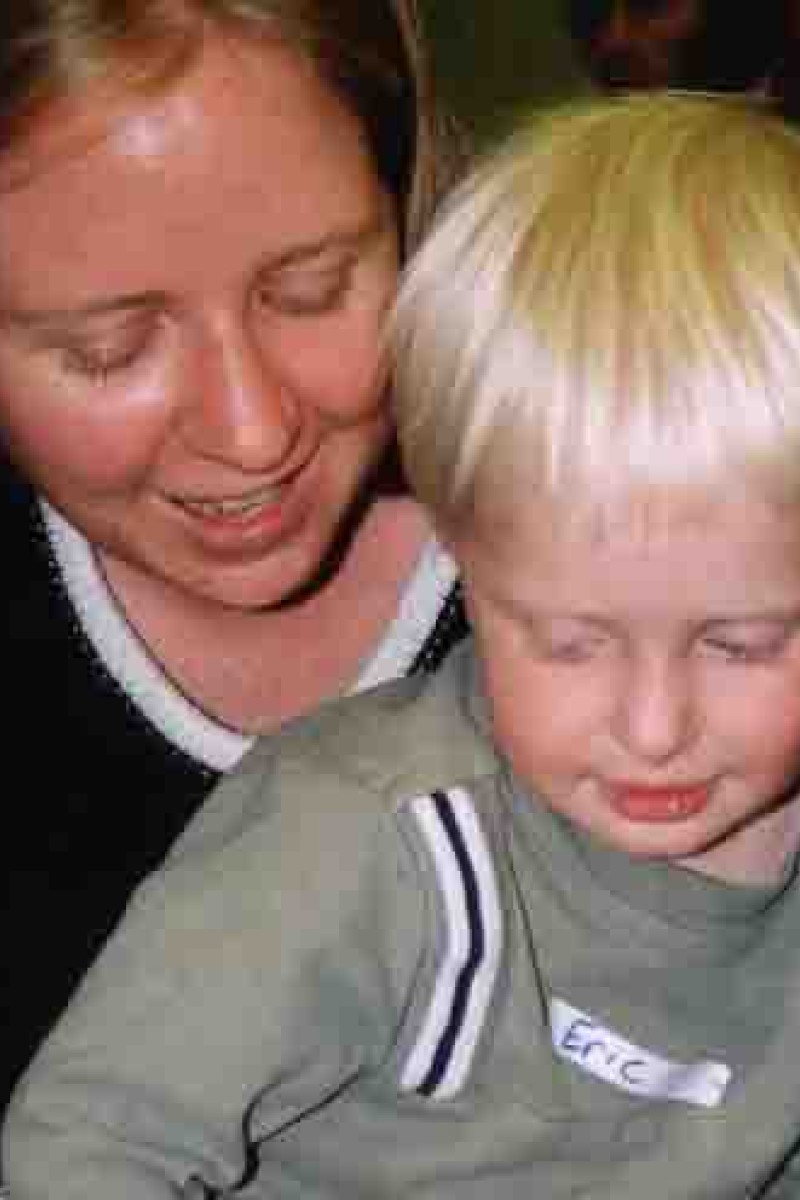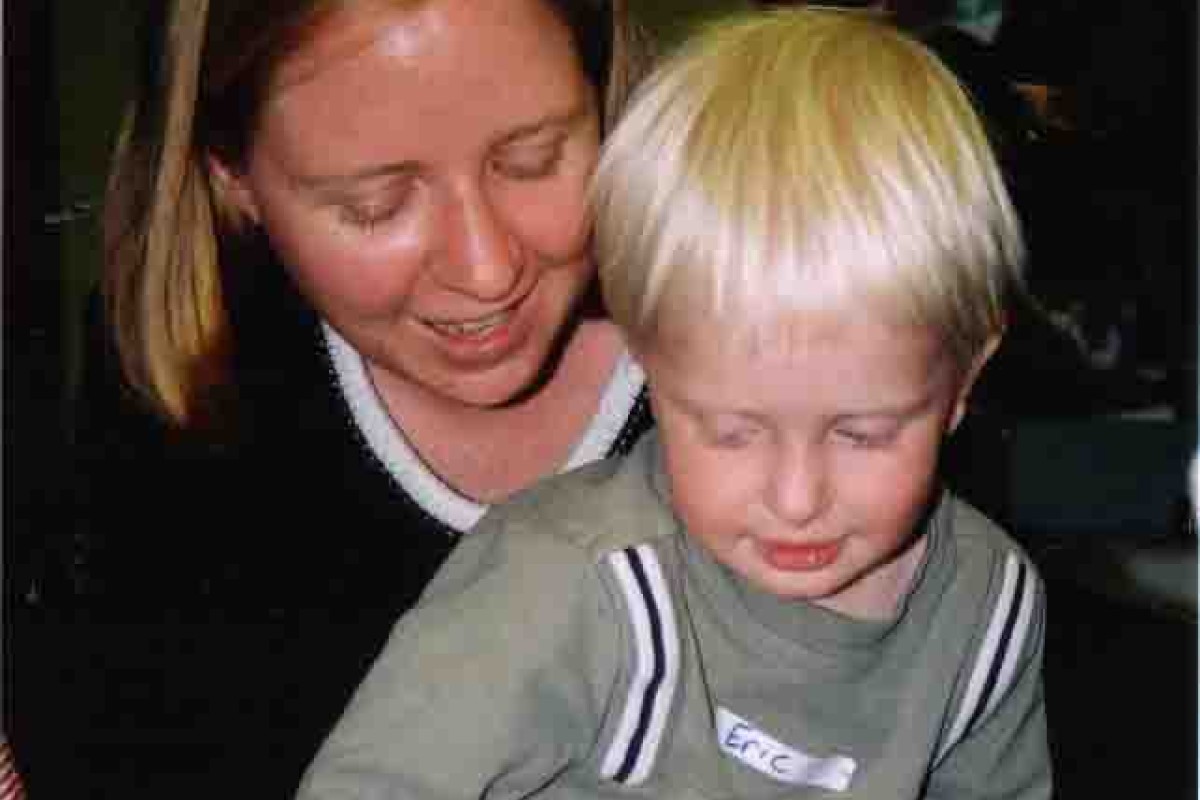
Eric Walton's mom publicly compared him to killer Adam Lanza. Now the teen is opening up about his mental health
 Eric and his Mum, when he was much younger.
Eric and his Mum, when he was much younger."My name is Eric Walton," the teenager said, standing centre stage at the April 2 Tedx Boise event. "At the age of 13 I was diagnosed with bipolar disorder after my mom wrote a slightly unimportant blog post that went viral on the internet ... She said that she was the mother of a child with a mental illness. A few days later I got the diagnosis."
It was during Eric's fourth time in hospital, a result of the rages and tantrums that defined his childhood, when a man on the other side of the country murdered his mother and then massacred first graders at a Connecticut primary school.
The awful tragedy shook Liza Long, who immediately thought of her own son currently asleep with the help of medicine in a psychiatric ward. It could have been him. It could have been her. That night she wrote the provocative blog post "I am Adam Lanza’s Mother." "I live with a son who is mentally ill. I love my son. But he terrifies me," she wrote.
When she visited her son in the hospital the day after her post published, they discussed it. He asked her why she would compare him to a serial killer. He was hurt and confused. She explained that his hardships were similar to Lanza's, and that she was scared. She used a fake name, "Michael," to protect her son’s identity, but she'd shared her own.
When the post went viral, Long made even louder calls for greater mental health awareness, but her son remained out of the spotlight, turning down TV interviews and other press as he concentrated on his recovery. A Connecticut-based psychiatrist had seen Long's blog post and quickly identified the symptoms she'd described as consistent with bipolar disorder. She and Eric flew east together, and the doctor prescribed lithium, the most common and effective drug for managing bipolar.
Now, after a decade of misdiagnoses and failed medications, of overnights in hospitals and juvenile jails, her son is in control of his own mind. And, after more than three years without incident, he is ready to also be in control of his own story.
At the Tedx talk, Eric, 16, described a childhood beset with unexcplained anger and uncontrollable outbursts. When he was a toddler, doctors told his parents he'd grow out of it. In kindergarten he'd tear through his classroom in such a rage that teachers had to send the rest of the class out of the room for their safety as if it were a fire drill. His own family had a similar drill - his siblings would lock themselves in the car when Eric raged.
Doctors diagnosed him with autism, then attention deficit disorder, then something called intermittent explosive disorder. Each new illness came with a new batch of drugs whose side effects were vast - weight gain, lethargy, blurred vision. But they didn't calm his violent urges.
He was admitted to hospital for the first time when he was nine years old. His first time in jail was around his 11th birthday, when his parents called the police on him after he attacked his father. "The only way to get help was to charge your child with a crime," Eric said during his talk. "So that’s what my parents did. They charged me with battery."
He recalled shivering under two paper-thin blankets in the tiny cell. He wasn't cold, he said. He was trembling from fear.
An estimated 70 per cent of kids that go through the juvenile justice systems have a mental health condition, according to the National Association of Mental Illness. About half of all kids with a mental illness didn't receive any treatment the year before.
The last time Eric was admitted to hospital was December 2012. He was 13 and strong enough now to hurt someone in his rage - this latest over what colour pants to wear to school. It was that same week Lanza attacked Sandy Hook Elementary School, killing 20 students and six adults. His Mum thought about Eric's violent tendencies and threats to hurt himself or others.
"The reason I decided to write it was people were really judging Nancy Lanza and I wanted to put a face on it. So go ahead and judge me because I'm going through it too and I'm trying," she said in an interview.
There were consequences.
Child services ordered her other two children to go live with their father for their safety. Some questioned whether his mother should have made his troubles so public.
But it led to Eric’s accurate diagnosis and it made her part of a larger community of mental health advocates. Its "an unintentional calling," she said.
Eric is now back in mainstream school after being placed for two years in a special school for kids with anger issues. He has real friends, after a lonely childhood of isolation from his peers. He's planning for college, where he wants to study psychology or physics. He loves to write and watch Star Trek - "hard core nerd," he called it - and he joined a fencing club.
Eric, in an interview, said it was after his second week at his new school without an outburst that he realised the medication worked. But recovery doesn't mean complacency, and Eric knows his stability is something he'll have to work on for the rest of his life. He'll always be on the medication. He meditates nightly. He practices mindfulness. "I have to be aware of my surroundings," he said, "and know my limits."
"It's not just the lithium, it was the diagnosis. Once he had it, he ran with it," Long said. "That's what I wish people knew. The people working on their recovery like that are really inspiring to watch. And so full of compassion."
Eric also wants people to know that he's not defined by his illness. It's just something he has to monitor, not unlike someone would their diabetes or blood pressure.
"The lesson I want you to take away from this story is this: 'Yes, I have a mental illness. No, I'm not inferior to other human beings. No, I’m not crazy. No, I’m not someone to be feared.’ " he said in closing his Tedx talk.
"Mental illness should be treated with respect and kindness, not fear and stigma. Because I’m a human being. People with mental illness are all human beings."